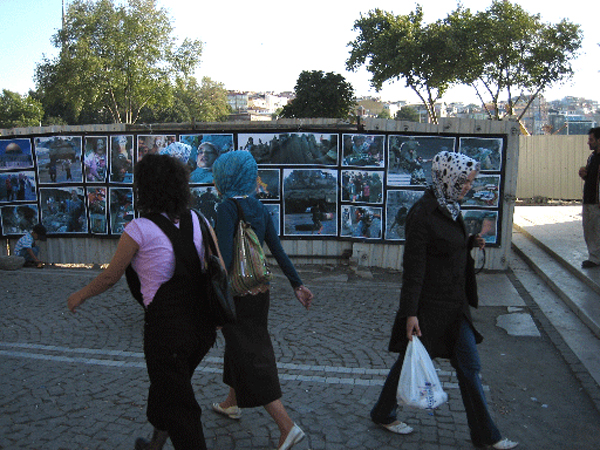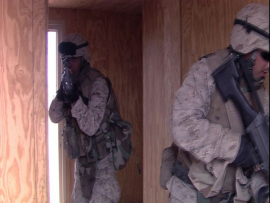
Allan Siegel: Image as Event 2

"The threat of Terrorism just does not have the magnitude of effect on the imagination that the Cold War did, particularly as there was no evidence of either wmd or collusion with Al queda. The mask was tron from the Official Story earlier than it was with Vietnam." from Linda Robertson is a bit off the mark. The 'threat of terrorism' not only has an 'effect on the imagination' but a very real impact on day-to-day realities. The use of a 'terrorist threat' strikes a very visceral chord in most people (in many parts of the world) especially when increased surveillance, body searches, and many other form of abrasive intrusions occur to disrupt ordinary daily routines. The re-invoking, re-modeling of 'the terrorist threat' is very much attached to (as we all know) a political agenda - previously we had the Saddam is Hitler construct. Remember that Reagan said the Sandinistas were going to invade Texas - an earlier version of the 'terrorist threat.'
The 'threats' grounded in the Cold War imaginary evolved over a period of time whereas the present-day 'terrorist threat' is a mantra that has been chanted most strongly by heads of state in Washington and Israel. This has the effect of neutralizing (and obfuscating) the imagery as well as masking the harsh political objectives associated with the Iraq War/s, the Lebanon incursion and the occupation of the West Bank.
Within the colonial and neo-colonial mindset there is a seemingly facile ability to propagandize, 'change course' and distort events if it allows one to 'save face' and maintain equilibrium. As in the BATTLE OF ALGIERS the defense of the colony was justifiable (by whatever means) as long as it could be successful. In Vietnam a more sophisticated, devastating strategy 'for victory' also failed. And, it was at this moment when many journalists realized they were promoting a losing strategy that they changed their tune. Similarly in Iraq.
'The images as event' promulgated in the Western media resonate because in the popular consciousness the 'terrorist threat' is associated with real events - similarly, throughout the Middle East and much of the Islamic world there are - As Negar's images point out - other images that resonate and with an equally powerful impact on popular consciousness. Acts of state terrorism are no less vivid than other forms of terrorism. They also provoke outrage.
The image above and here were taken in Istanbul during the Lebanon bombing. This was in a very busy part of the city.
> Allan Siegel

